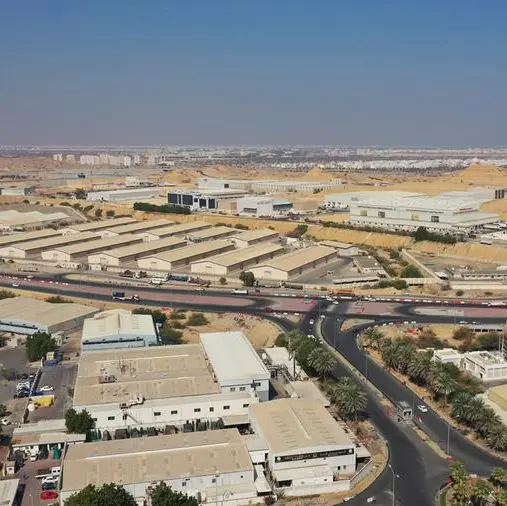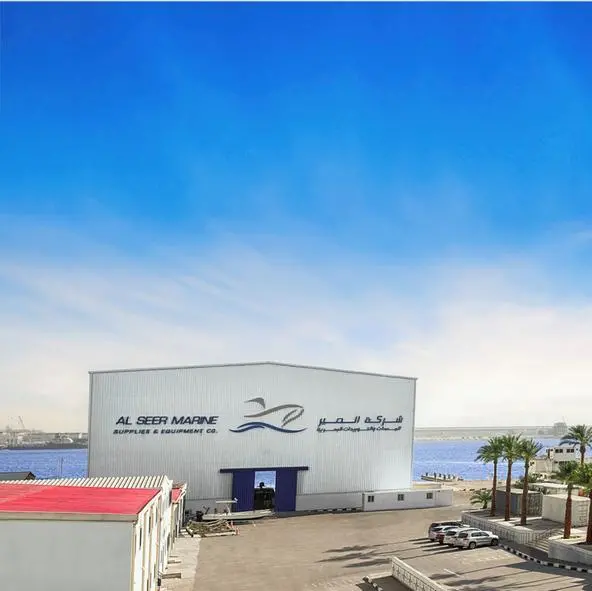PHOTO
At COP28 in Dubai last year, the global community pledged to work together in order to collectively double the global average annual rate of energy efficiency improvements from around 2 percent to over 4 percent every year until 2030 with the aim of keeping within reach the Paris Agreement target of limiting global warming to 1.5 °C.
As the largest energy consuming sector accounting for around one-third of total demand, industry has a particularly large role in driving overall energy intensity.
“Improving energy efficiency is one of the fastest and most cost-effective ways for industrial organisations to reduce their environmental impact and operating costs,” said Erich Labuda, President of Motion Services Division at ABB.
In 2023, global energy efficiency improved by an estimated 1.1 percent, according to International Energy Agency (IEA) data – well below the target.
Labuda pointed out that while approximately 300 million electric motor-driven systems are in operation globally, many are not running at peak efficiency.
The ABB executive explained that the company uses energy efficiency audits, leveraging its domain expertise and advanced solutions, to pinpoint potential energy savings and CO2 emission reductions as well as track equipment to enable efficient operations, waste reduction and regulatory compliance.
He continued: “Post- energy audit, we implement key energy efficiency solutions and services identified like upgrading to higher efficiency motors, adding variable speed drives (VSD) or even simply adjusting the operational parameters of the motors. This delivers substantial energy efficiency gains and CO2 emissions reductions - all within attractive ROI and payback time.”
According to Labuda, ABB’s strategic research partnership with the European Laboratory for Particle Physics CERN on the cooling and ventilation system at the facility exemplifies the company’s commitment to sustainable technologies. Energy efficiency audits at CERN, conducted between 2022 and 2023, identified a 17.4 percent savings potential across 800 motors, potentially reducing annual energy consumption by up to 31GWh—enough to power over 18,000 European households and avoid four kilo-tonnes of CO2 emissions.
ABB has launched an online calculator, which is a light version of the in-depth energy efficiency audit used by the company and based on the same algorithm, to provide data and insight to companies on the energy performance of motor-driven systems.
“By inputting basic details about their motor fleet, running hours and average operating power, the customer can estimate energy and emissions savings, and payback period,” explained Labuda.
Excerpts from the interview:
In your opinion, what are some of the biggest energy-saving opportunities in the industrial sector?
In the industrial sector, the largest potential for a reduction in electricity consumption and corresponding emissions lies in improving the efficiency of electric motors and end-use devices such as pumps and fans, as well as the use of better system and process control strategies. Industrial businesses are responsible for acting and reducing their environmental impact, as industry accounts for a quarter of global emissions. As society demands a low-carbon future, and to meet the COP 28 emissions targets, industrial companies must lead the way.
Thus, to reduce industrial motors' environmental impact, they should eventually be powered by renewable energy. Nevertheless, a more immediate solution would be to improve the energy efficiency of the already installed motors which, according to IEA, can reduce global electricity consumption by 10 percent. This reduction equates to more than 90 percent of the entire EU’s annual consumption.
How much energy and money can industrial facilities save through motor system energy audits?
If there is one thing that truly powers the industry, it is motors. Businesses are often very keen to improve their energy efficiency, but they usually don’t know where to start. That is why energy audits are so useful. They tell precisely where the biggest efficiencies can be found across hundreds of motor systems in a plant or facility. This helps maintenance teams make better decisions on how to save energy and cut costs, by targeting motors with the greatest energy-saving potential.
To show the true power of energy audits in identifying energy savings, we recently audited more than 2,000 industrial motors across a wide range of sectors and applications. The audits were conducted across a variety of countries. However, if we imagine that all motors were operating in the UAE, based on November 2023 data, a 2.1 TWh energy saving would avoid 1.5 million tonnes of CO2 emissions and have an ROI of six months. Equally, if they were in Germany, savings would amount to 940,000 tonnes of CO2 and an ROI of just three months. These savings would be enough to offset the emissions of a coal plant for three months in the UAE and two months in Germany.
What is the main barrier preventing companies from investing in the modernisation of motors?
Companies often find it difficult to justify the up-front expenses. The perceived cost of upgrades is often the barrier stopping businesses from auditing their motors in the first place. However, because of the energy savings, many upgrades recuperate their cost in a matter of months. In addition, the initial investment is only part of the costs that customers must bear. The majority of the costs lie in operations spanning the motors’ lifetime. Considering that a motor typically lasts 15 to 20 years, businesses can save a lot by investing in their efficiency.
Could you explain how ABB Motion Services helps industrial customers gain insights into their motor-driven applications?
ABB Motion Services offers a range of solutions specifically designed to help businesses improve the energy efficiency of their operations. For instance, an ABB Energy Appraisal gives detailed insight into how motor-driven applications perform, helping to make better decisions on saving energy, lowering CO2 emissions, and boosting a company’s overall energy efficiency. This process can be done online or offline, i.e., when equipment is connected or not connected.
The online process uses remote connections to collect data from connected powertrain assets. With this data, the customer can get both instant insights into the energy use of their fleet, as well as accurate assessments of the energy saving potential of individual connected assets. These insights enable better decision-making, and because the data is gathered over longer periods, it can also be used to reveal hidden opportunities to improve energy savings.
How is ABB contributing to a more sustainable future in Egypt, considering its involvement in projects like the Toshka development?
In general, the Egyptian market is a promising market and a fertile field for investment and ABB has a distinguished presence in Egypt aligning with its strategic sustainable goals. For instance, ABB has supplied the iconic tower in the New Administrative Capital (NAC) with its ACH580 variable frequency drives, which are designed to control HVAC applications in smart buildings enabling energy savings of 25-30 percent, annually.
Furthermore, ABB has leveraged its extensive range of products and services to help the Egyptian government represented in the partnership with the Ministry of Trade and Industry and General Organisation for Export and Import Control (GOEIC), where ABB donated a specialised energy efficiency electric motor testing laboratory to rate imported motors, verify their energy efficiency, and ensure technical standards are compatible with global import stipulations.
ABB is also interested in participating in Egypt’s national projects, especially those related to water and wastewater treatment. The most important of them is the Toshka project, which aims to achieve self-sufficiency in wheat, where ABB supplied the project with motors and variable speed drives, thereby offering significant energy savings, typically from 30 to 50 percent compared to conventional equipment.
(Reporting by Marwa Abo Almajd; Editing by Anoop Menon) (anoop.menon@lseg.com)
Subscribe to our Projects' PULSE newsletter that brings you trustworthy news, updates and insights on project activities, developments, and partnerships across sectors in the Middle East and Africa





















